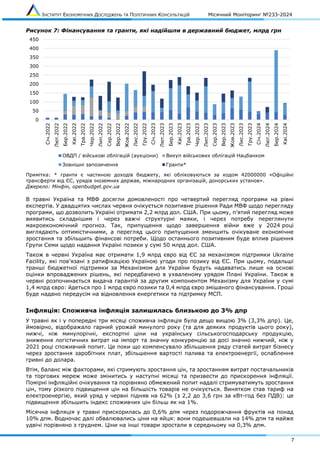Lack Of Funds: Overcoming Financial Barriers

Table of Contents
Budgeting and Expense Tracking: Mastering Your Finances
Effective budgeting is the cornerstone of financial stability. It's about understanding where your money goes and making conscious decisions about how to allocate it. Overcoming a lack of funds often begins with mastering your finances through careful budgeting and diligent expense tracking.
Creating a Realistic Budget
The first step is to honestly assess your income and expenses. Tracking every dollar coming in and going out is crucial. There are several budgeting methods you can use:
- 50/30/20 Rule: Allocate 50% of your income to needs (housing, food, utilities), 30% to wants (entertainment, dining out), and 20% to savings and debt repayment.
- Zero-Based Budgeting: Assign every dollar of your income to a specific category, ensuring your expenses equal your income. This leaves no room for unplanned spending.
Once you've tracked your spending for a month or two, you can identify areas where you can cut back. Unnecessary subscriptions, impulse purchases, and eating out too often are common culprits.
- Use budgeting apps: Mint, YNAB (You Need A Budget), and Personal Capital are popular tools that can automate tracking and provide insightful reports. These can help visualise where your money is going, making it easier to identify areas for improvement.
Tracking Your Spending
Consistent monitoring is key. Whether you use a spreadsheet, budgeting app, or even a simple notebook, the goal is to stay informed about your spending habits. This helps you:
- Identify spending patterns: Are you consistently overspending in certain categories? Understanding your spending patterns is vital for creating a more effective budget.
- Pinpoint areas for improvement: By regularly reviewing your expenses, you can identify areas where you can make adjustments and reduce unnecessary spending.
Seeking Additional Income Streams: Expanding Your Financial Resources
A lack of funds can often be addressed by increasing your income. Exploring additional income streams can significantly improve your financial situation and accelerate your journey towards financial freedom.
Exploring Part-Time Opportunities
The gig economy offers numerous opportunities to earn extra income. Consider:
- Freelancing: Offer your skills (writing, design, programming, etc.) on platforms like Upwork or Fiverr.
- Gig work: Driving for Uber or delivering food with DoorDash are readily available options.
- Side hustles: Explore options aligned with your interests and skills, such as tutoring, pet-sitting, or crafting.
Remember to factor in the time commitment and potential expenses associated with these opportunities.
Investing and Generating Passive Income
While investing involves risk, it can be a powerful tool for long-term financial growth and generating passive income. (Disclaimer: Investing involves risk, and you could lose money.)
- Dividend stocks: Companies that pay out a portion of their profits as dividends can provide a steady stream of passive income.
- Bonds: Generally considered lower-risk than stocks, bonds offer a fixed income stream.
- Real Estate: Rental properties can generate passive income, but require significant upfront investment and ongoing management. (Disclaimer: Real estate investments carry significant risk.)
Remember to do your research and seek professional financial advice before making any investment decisions.
Debt Management and Reduction Strategies: Tackling Financial Obligations
High levels of debt can significantly exacerbate feelings of a lack of funds. Addressing your debt is crucial for long-term financial health.
Understanding Different Types of Debt
It's important to differentiate between good debt and bad debt:
- Good debt: Often used for investments that appreciate in value, like a student loan for education or a mortgage for a home.
- Bad debt: High-interest debt like credit card debt, which can quickly accumulate and hinder financial progress.
Understanding the concept of interest – the cost of borrowing money – is crucial. High-interest debt costs you more in the long run.
Strategies for Debt Reduction
Several methods can help you tackle your debt:
- Debt consolidation: Combining multiple debts into a single loan with a potentially lower interest rate.
- Debt snowball: Paying off the smallest debt first, then rolling that payment into the next smallest, creating momentum.
- Debt avalanche: Paying off the debt with the highest interest rate first to minimize the total interest paid.
Negotiating with creditors to lower interest rates or payment amounts can also significantly help. Consider seeking professional financial advice from a credit counselor if you’re struggling to manage your debt.
Seeking Financial Assistance and Resources: Utilizing Available Support
Don't hesitate to seek help if you're facing a lack of funds. Many resources are available to provide support:
Government Assistance Programs
Many governments offer assistance programs for those facing financial hardship. Research programs specific to your location, such as unemployment benefits, food stamps (SNAP), or housing assistance.
Non-profit Organizations and Charities
Numerous non-profit organizations and charities offer financial assistance and resources. Research local and national organizations that can help.
Credit Counseling Services
Credit counseling services can provide valuable guidance on budgeting, debt management, and financial planning. They can help you create a plan to address your lack of funds and improve your financial situation.
Conclusion
Overcoming a lack of funds requires a multifaceted approach. By implementing the strategies discussed – creating a realistic budget, exploring additional income streams, managing your debt effectively, and seeking available assistance – you can take significant steps towards achieving financial stability. Don't let a lack of funds define your future. Address your lack of funds proactively by choosing one strategy from this article and starting today. Gain control of your finances and build a brighter financial future for yourself!

Featured Posts
-
 Bp Ceo Targets Valuation Doubling Remains Committed To Current Stock Exchange Listing According To Ft
May 21, 2025
Bp Ceo Targets Valuation Doubling Remains Committed To Current Stock Exchange Listing According To Ft
May 21, 2025 -
 How To Deal With A Love Monster
May 21, 2025
How To Deal With A Love Monster
May 21, 2025 -
 Naybilshi Finansovi Kompaniyi Ukrayini U 2024 Rotsi Analiz Dokhodiv
May 21, 2025
Naybilshi Finansovi Kompaniyi Ukrayini U 2024 Rotsi Analiz Dokhodiv
May 21, 2025 -
 Occasionverkoop Abn Amro Stijgt Aanzienlijk Analyse Van De Groei
May 21, 2025
Occasionverkoop Abn Amro Stijgt Aanzienlijk Analyse Van De Groei
May 21, 2025 -
 Clisson Le Festival Le Bouillon Et Ses Spectacles Engages
May 21, 2025
Clisson Le Festival Le Bouillon Et Ses Spectacles Engages
May 21, 2025
Latest Posts
-
 Antiques Roadshow National Treasure Unearthed Leading To Arrest Of Couple
May 21, 2025
Antiques Roadshow National Treasure Unearthed Leading To Arrest Of Couple
May 21, 2025 -
 Couple Arrested Following Jaw Dropping Antiques Roadshow Appraisal Of National Treasure
May 21, 2025
Couple Arrested Following Jaw Dropping Antiques Roadshow Appraisal Of National Treasure
May 21, 2025 -
 Antiques Roadshow Stolen Treasures Result In Criminal Charges
May 21, 2025
Antiques Roadshow Stolen Treasures Result In Criminal Charges
May 21, 2025 -
 Stolen Antiques Antiques Roadshow Appearance Ends In Arrest
May 21, 2025
Stolen Antiques Antiques Roadshow Appearance Ends In Arrest
May 21, 2025 -
 Antiques Roadshow Leads To Jail Time For Couple With Stolen Items
May 21, 2025
Antiques Roadshow Leads To Jail Time For Couple With Stolen Items
May 21, 2025
